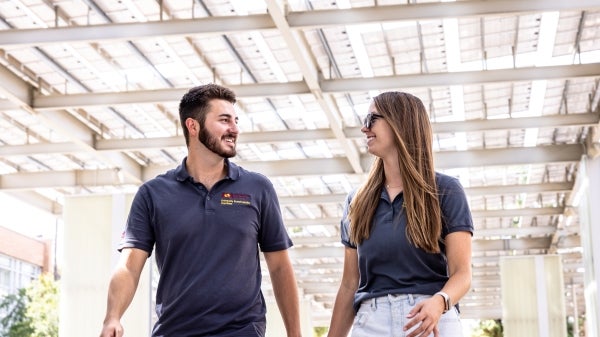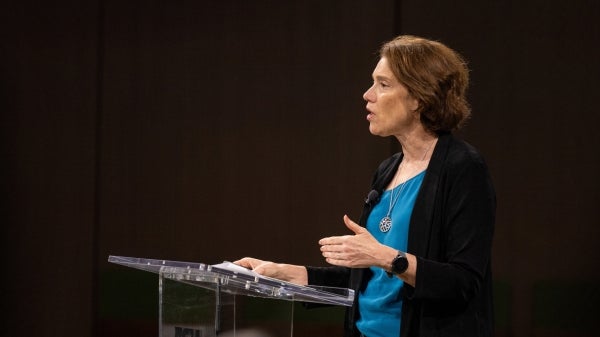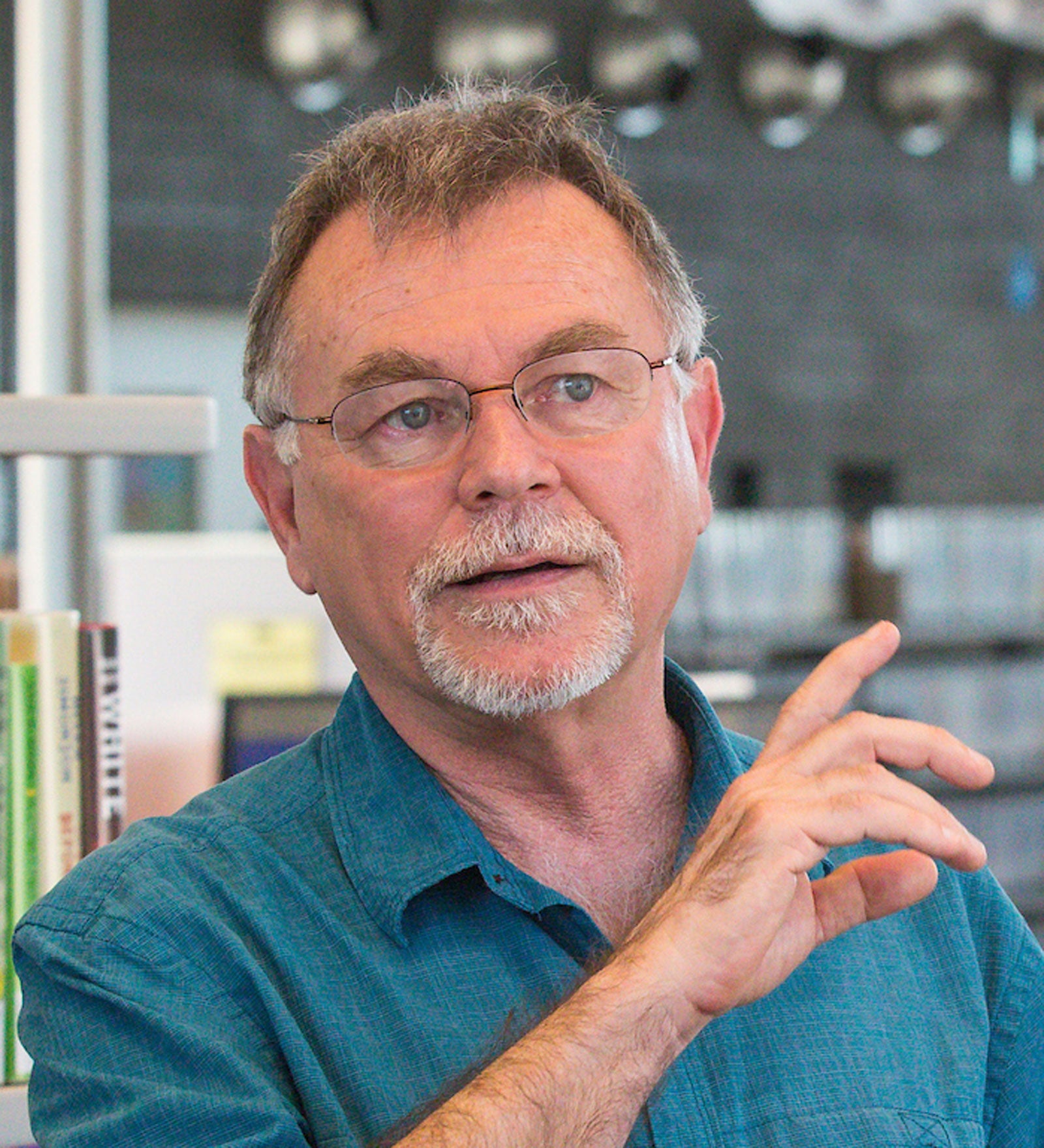The striking landscapes that make up our national parks can inspire profound exclamations in even the most ineloquent of visitors. But for an occasion such as the National Park Service's centennial, a creative initiative is bringing out the pros: poets lending their words to the nation.
On Thursday, the first fiveFirst to be featured are writers from Arizona, Iowa, Louisiana, North Carolina and Pennsylvania. of 50 commissioned poems — one for each state — were released by the Academy of American Poets for the “Imagine Our Parks with Poems” initiative. Arizona's entry was written by Alberto Ríos, an Arizona State University Regents’ Professor and the state’s official poet laureate
Ríos was asked to write a contribution on an Arizona national park of his choice. His poem, “Faithful Forest,” lauds the state’s quieter natural wonder — Petrified Forest National Park (pictured above).
Alberto Ríos
“The Grand Canyon, of course, speaks for itself,” said Ríos. “The Petrified Forest is a place with a wonderful name but something of a baffling first impression. This was something I could do: help us to understand where we are and how important the greater conversation of the world around us truly is.”
Petrified Forest National Park is in northeastern Arizona, about 50 miles from the New Mexico boundary on Interstate 40. It is known for the large number of fossilized trees and other Late Triassic flora and fauna, as well as for its colorful landscapes.
Engaging people with such memorable places is the goal of the larger “Imagine Your Parks” grant initiative from the National Endowment for the Arts, created in partnership with the National Park Service, an initiative of which the Academy of American Poets project is a part.
Ríos was the natural choice for an Arizona poet. He has described much of his work as written “for public purpose,” since he is often called on to create poems commemorating occasions and events. He has written poems for the visit of Mexico’s President Vicente Fox to Arizona in 2003, for the inaugurations of Arizona Gov. Janet Napolitano in 2003 and 2007, for a permanent installation on the U.S.-Mexico border at Nogales, and, most recently, upon the death of former Arizona Gov. Raul Castro in 2015.
“I have come to see the value of paying attention,” Ríos said, “and the wisdom of paying attention not simply to oneself. Paying attention to and for others, and to the things of this world as well — this has given me a new work, a next level of public as well as personal consideration.”
The U.S. National Park Service turned 100 on Aug. 25. According to the park service website, “The centennial kicks off a second century of stewardship of America's national parks and engaging communities through recreation, conservation, and historic preservation programs.”
Ríos’ poetic statement follows his poem below.
Faithful Forest
Alberto Ríos
1.
I will wait, said wood, and it did.
Ten years, a hundred, a thousand, a million —
It did not matter. Time was not its measure,
Not its keeper, nor its master.
Wood was trees in those first days.
And when wood sang, it was leaves,
Which took flight and became birds.
2.
It is still forest here, the forest of used-to-be.
Its trees are the trees of memory.
Their branches — so many tongues, so many hands —
They still speak a story to those who will listen.
By only looking without listening, you will not hear the trees.
You will see only hard stone and flattened landscape,
But if you’re quiet, you will hear it.
3.
The leaves liked the wind, and went with it.
The trees grew more leaves, but wind took them all.
And then the bare trees were branches, which in their frenzy
Made people think of so many ideas —
Branches were lines on the paper of sky,
Drawing shapes on the shifting clouds
Until everyone agreed that they saw horses.
4.
Wood was also the keeper of fires.
So many people lived from what wood gave them.
The cousins of wood went so many places
Until almost nobody was left — that is the way
Of so many families. But wood was steadfast
Even though it was hard from loneliness. Still,
I will wait, said wood, and it did.
About this poem
I remember first coming to the Petrified Forest as a very young man and wondering what all the fuss was about. There didn’t seem to be much there. Petrified wood lay everywhere, in greater and lesser amounts, but it just seemed like curious rock. In driving through the area, which is large, however, the more the place began to change before me. It was a drive through time.
The great expanses of northern Arizona are geologic in their scope — human measures are not adequate to understanding them. The Grand Canyon we can “see” — but to see the Petrified Forest, you must use a different set of eyes.
Arizona is a place in which the human imagination is called upon to be complicit in understanding that this desert once was — so magically in this arid place, this very specific place — a forest.
The openness of this region lends itself to myth, to big story, to the engaged imagination hard at work for centuries in the act of understanding and in trying to see what is profoundly in front of us. In this effort, the desert is full of mirages, which may not be mirages at all but living acts of memory held in common with the Earth.
—Alberto Ríos
Ríos was named inaugural poet laureate for the state of Arizona in 2013, and a chancellor of the Academy of American Poets in 2014. He is the author of 10 books and chapbooks of poetry, three collections of short stories, and a memoir. His books of poems include, most recently, “The Dangerous Shirt,” preceded by “The Theater of Night,” winner of the 2007 PEN/Beyond Margins Award. His memoir about growing up on the Mexico-Arizona border — “Capirotada” — won the Latino Literary Hall of Fame Award and was designated as the One Book Arizona choice for 2009. His work is regularly taught and translated, and has been adapted to dance and both classical and popular music. He has taught at ASU for more than 30 years and also holds the Katharine C. Turner Endowed Chair in English.
More Environment and sustainability

The future is green: Job demand translates to high employability for ASU sustainability grads
A 2023 report by Forbes on the state of green jobs confirmed what Arizona State University has been trumpeting for years: Sustainability will play a large part in the new economy.The report suggests…

Researcher works on changing people's mindsets to fight climate change
Meaningful action to heal the climate requires a complete shift in the way people think and perceive each other, according to an expert on social transformation who spoke at Arizona State University…

NOAA, ASU offer workshop to bridge ocean exploration, education
Oceans are vital to sustaining life on Earth, as they produce over half of the oxygen we breathe and play a crucial role in regulating the planet's climate. They also support a diverse array of…

